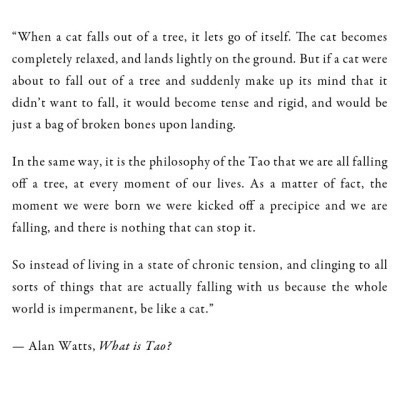Thecaffiend - Thecaffiend









More Posts from Thecaffiend and Others
Whenever I take a long car ride I end up exhausted afterwards, and I'm always like "why am I so tired? I was just sitting around doing nothing all day."
But the answer, it turns out, is I was doing something. Riding in a car jars your body in many directions and requires constant microadjustments of your muscles just to stay in place and hold your normal posture. Because you're inside the car, inside the situation, it's easy not to notice all the extra work you're doing just to maintain the status quo.
There's all sorts of work that we think of as "free" that require spending energy: concentrating, making decisions, managing anxiety, maintaining hypervigilance in an unfriendly environment, dealing with stereotype threat, processing a lot of sensory input, repairing skin cells damaged by sun exposure, trying to stay warm in a cold room.
The next time you think you're tired from "nothing", consider instead that you're probably in situation where you're doing a lot of unnoticed extra work just to stay in place.




So how do they make that?
Honestly something that bothers me more than most things is having my compassion mistaken for naivety.
I know that another fish might eat this bullfrog right after I spend months rehabilitating it.
I know that turning a beetle back onto its legs won’t save it from falling over again when I walk away.
I know that there is no cosmic reward waiting for my soul based on how many worms I pick off a hot sidewalk to put into the mud, or how many times I’ve helped a a raccoon climb out of a too-deep trashcan.
I know things suffer, and things struggle, and things die uselessly all day long. I’m young and idealistic, but I’m not literally a child. I would never judge another person for walking by an injured bird, for ignoring a worm, or for not really caring about the fate of a frog in a pond full of, y’know, plenty of other frogs.
There is nothing wrong with that.
But I cannot cannot cannot look at something struggling and ignore it if I may have the power to help.
There is so much bad stuff in this world so far beyond my control, that I take comfort in the smallest, most thankless tasks. It’s a relief to say “I can help you in this moment,” even though they don’t understand.
I don’t need a devil’s advocate to tell me another fish probably ate that frog when I let it go, or that the raccoon probably ended up trapped in another dumpster the next night.
I know!!!! I know!!!!!!! But today I had the power to help! So I did! And it made me happy!
So just leave me alone alright thank u!!!!
why are french people rude?
Ah well, the safest explanation when an entire country’s people are stereotyped as rude is that they have their own culture with different criteria for politeness than the ones you are used to. It’s probably easier for Americans to forget this than for the rest of the world, because they consume less foreign media than the rest of us (from literature in translation to foreign films) and are less exposed to aspects of foreign cultures that could inform them about different norms of politeness (online interactions happen in their own language and follow their own (anglo) social codes.) With this insular worldview it’s easy to take it for granted that American good manners are universal. They are not!
A very common gripe against American tourists in Paris is that they talk so loudly in public spaces, which is definitely rude here but I assume that in the US, people just have a different threshold for what constitutes ‘loud’ (I wonder if it is due to being used to having more space than Europeans). I also remember a discussion I had with one of my translation professors about the American concept of ‘active listening’ and how negatively it is perceived in France. It may be that in the US it is polite to make ‘listening noises’ at regular intervals while someone is speaking to you, ‘uh huh’, ‘right’, ‘yeah’, ‘really?’, and that you would perceive someone who just stands there silently as disinterested or thinking about something else. In France it is more polite to shut up and listen (with the occasional nod or ‘mmh’) and it’s rather seen as annoying and rude to make a bunch of useless noise while someone is speaking.
There are of course countless examples like that. The infamous rude waiters in Parisian cafés probably seem a lot more rude and cold to people who have a different food culture… People from other cultures might consider a waiter terrible at his job if he doesn’t frequently check on them to make sure they don’t wait for anything, but the idea that a meal is a pleasant experience rather than just a way to feed yourself (esp when eating out) means we like having time to chat and just enjoy our table for a while, so we don’t mind as much waiting to order or for the next course. French people would typically hate if an overzealous waiter took the initiative to bring the note once we’re done with our meal so we don’t have to wait for it, as it would be interpreted as “you’re done, now get out of my restaurant.”
The level of formality required to be seen as polite is quite high in France, which might contribute to French people being seen as rude by people with a more casual culture. To continue with waiters, even in casual cafés they will address clients with the formal you and conversely, and won’t pretend to be your friend (the fact that we don’t have the American tip culture also means they don’t feel the need to ingratiate themselves to you.) I remember being alarmed when a waitress in New York introduced herself and asked how I was doing. “She’s giving me her first name? What… am I supposed to with it? Use it?” It gave me some insight on why Americans might consider French waiters rude or sullen! It might also be more accepted outside of France to customise your dish—my brother worked as a waiter and often had to say “That won’t be possible” about alterations to a dish that he knew wouldn’t fly with the chef, to foreign tourists who were stunned and angry to hear that, and probably brought home a negative opinion of French waiters. In France where the sentiment in most restaurants is more “respect the chef’s skill” than “the customer is king”, people are more likely to be apologetic if they ask for alterations (beyond basic stuff) as you can quickly be seen as rude, even by the people you are eating with.
And I remember reading on a website for learning English that the polite answer to “How are you?” is “I’m fine, thank you!” because it’s rude to burden someone you aren’t close to with your problems. In my corner of the French countryside the polite thing to do is to complain about some minor trouble, because saying everything is going great is perceived negatively, as boasting, and also as a standoffish reply that kind of shuts down the conversation, while grumbling about some problem everyone can relate to will keep it going. (French people love grumbling as a positive bonding activity!)
Basically, before you settle on the conclusion that people from a different place are collectively rude, consider that if you travel there and scrupulously follow your own culture’s social code of good manners, you might be completely unaware that you are being perceived as obnoxious, rude or unfriendly yourself simply because your behaviour clashes with what is expected by locals.

(source)
“The closer rebel characters come to a definable ideology, the more likely they are to be written as villains. At the same time, the emotive aspects of rebellion - the heroism of the underdog, the thrill of fighting the power - are rendered safe for public consumption by taking out any explicit political ideology. … The effect of all this is to suggest that violence is somehow more sympathetic the less its perpetrators believe - that heroism decreases the more detailed your policy proposals get. If Luke Skywalker was fighting for galactic communism, or Daenerys intended to create a series of peasants’ councils to govern Westeros, or Harry Potter wanted to smash the Ministry of Magic and overturn wizard supremacy, we would have to confront serious and difficult questions about when political violence is appropriate, for whose benefit, and for what purposes. I don’t believe those are questions pop culture is incapable of asking. They are questions we do not want to ask.”
— Alister MacQuarrie, Outlaw Kings and Rebellion Chic (via secularbakedgoods)
-
 feytalagog reblogged this · 1 week ago
feytalagog reblogged this · 1 week ago -
 tha-mi-beo reblogged this · 1 week ago
tha-mi-beo reblogged this · 1 week ago -
 hoovesofdoubt liked this · 1 week ago
hoovesofdoubt liked this · 1 week ago -
 korven-kuningas liked this · 1 week ago
korven-kuningas liked this · 1 week ago -
 hungryriverbeast reblogged this · 1 week ago
hungryriverbeast reblogged this · 1 week ago -
 hungryriverbeast liked this · 1 week ago
hungryriverbeast liked this · 1 week ago -
 ratsmagickstorybook liked this · 1 week ago
ratsmagickstorybook liked this · 1 week ago -
 misharadeva liked this · 1 week ago
misharadeva liked this · 1 week ago -
 evalli liked this · 1 week ago
evalli liked this · 1 week ago -
 yonhet liked this · 2 weeks ago
yonhet liked this · 2 weeks ago -
 captainbuddha liked this · 2 weeks ago
captainbuddha liked this · 2 weeks ago -
 tetraspace-west liked this · 2 weeks ago
tetraspace-west liked this · 2 weeks ago -
 hallau liked this · 2 weeks ago
hallau liked this · 2 weeks ago -
 eameseames reblogged this · 2 weeks ago
eameseames reblogged this · 2 weeks ago -
 eameseames liked this · 2 weeks ago
eameseames liked this · 2 weeks ago -
 jewllyfish liked this · 2 weeks ago
jewllyfish liked this · 2 weeks ago -
 iamaine liked this · 2 weeks ago
iamaine liked this · 2 weeks ago -
 theboywhowonders liked this · 2 weeks ago
theboywhowonders liked this · 2 weeks ago -
 thepeppermintpig liked this · 2 weeks ago
thepeppermintpig liked this · 2 weeks ago -
 detlillemennesket reblogged this · 2 weeks ago
detlillemennesket reblogged this · 2 weeks ago -
 ikothegecko reblogged this · 2 weeks ago
ikothegecko reblogged this · 2 weeks ago -
 ikothegecko liked this · 2 weeks ago
ikothegecko liked this · 2 weeks ago -
 kaliopae reblogged this · 2 weeks ago
kaliopae reblogged this · 2 weeks ago -
 yhmain reblogged this · 2 weeks ago
yhmain reblogged this · 2 weeks ago -
 yhmain liked this · 2 weeks ago
yhmain liked this · 2 weeks ago -
 fawkesofalbion reblogged this · 2 weeks ago
fawkesofalbion reblogged this · 2 weeks ago -
 fawkesofalbion liked this · 2 weeks ago
fawkesofalbion liked this · 2 weeks ago -
 777cupcake liked this · 2 weeks ago
777cupcake liked this · 2 weeks ago -
 chicaotaku17 liked this · 2 weeks ago
chicaotaku17 liked this · 2 weeks ago -
 ochxkos reblogged this · 2 weeks ago
ochxkos reblogged this · 2 weeks ago -
 rumbustious-backhander reblogged this · 2 weeks ago
rumbustious-backhander reblogged this · 2 weeks ago -
 beewulf liked this · 2 weeks ago
beewulf liked this · 2 weeks ago -
 thequicksilverfox liked this · 2 weeks ago
thequicksilverfox liked this · 2 weeks ago -
 jurefuup reblogged this · 2 weeks ago
jurefuup reblogged this · 2 weeks ago -
 redo-cells-servant liked this · 2 weeks ago
redo-cells-servant liked this · 2 weeks ago -
 secondhand-lions liked this · 2 weeks ago
secondhand-lions liked this · 2 weeks ago -
 zoeflake liked this · 2 weeks ago
zoeflake liked this · 2 weeks ago -
 wlwaluigi liked this · 2 weeks ago
wlwaluigi liked this · 2 weeks ago -
 liviebelll liked this · 2 weeks ago
liviebelll liked this · 2 weeks ago -
 untitledgoosegay reblogged this · 2 weeks ago
untitledgoosegay reblogged this · 2 weeks ago -
 selfmadefag reblogged this · 2 weeks ago
selfmadefag reblogged this · 2 weeks ago -
 boycrush2000 liked this · 2 weeks ago
boycrush2000 liked this · 2 weeks ago -
 thin-mint-75 reblogged this · 2 weeks ago
thin-mint-75 reblogged this · 2 weeks ago -
 sxpph0 reblogged this · 2 weeks ago
sxpph0 reblogged this · 2 weeks ago -
 sxpph0 liked this · 2 weeks ago
sxpph0 liked this · 2 weeks ago -
 kingkilling-and-stormlight liked this · 2 weeks ago
kingkilling-and-stormlight liked this · 2 weeks ago -
 fluid-as-fuck-pansexual liked this · 2 weeks ago
fluid-as-fuck-pansexual liked this · 2 weeks ago -
 far-too-many-words reblogged this · 2 weeks ago
far-too-many-words reblogged this · 2 weeks ago -
 far-too-many-words liked this · 2 weeks ago
far-too-many-words liked this · 2 weeks ago -
 missmassacre liked this · 2 weeks ago
missmassacre liked this · 2 weeks ago
